#ElectricCars
Doing the Math Yields More Bad News for China's Auto Industry
Over the past several years, the Chinese government embarked on an aggressive electric vehicle push, hoping to mitigate the nation’s severe air pollution, reduce its reliance on oil imports, and foster a high-tech manufacturing sector that could put the rest of the world to shame. The result of these efforts? Hundreds of new EV companies, propped up by Chinese subsidies and investors, with no real future.
While it was known that most of these startups would never make it to the finish line, estimates of their survivability rate has grown increasingly bleak. For a time, it was assumed that most would die out — leaving anywhere between 5 and 10 percent to reach the assembly phase. However, NIO Capital’s Ian Zhu posited that the number was likely closer to 1 percent last August.
China is now pulling back its support, with many believing the industrial bubble is about to pop. And they have the math to back it up.
VW Group Admits Developing Affordable EVs Will Be Difficult
Even with affordable electric vehicles cropping up on the global market, their budgetary nature is relative. While the industry promises that EVs will offer the world an affordable, mechanically simple and green alternative to traditional internal combustion models, they’ve yet to deliver. That’s not to suggest e-cars are failures, just that the technologies involved are still maturing.
Battery prices will continue to decline and eventually governments won’t always need to incentivize EV purchases through tax credits. But we’ve yet to reach the point where it makes just as much financial sense to buy a small EV as it would a gasoline-powered econobox. That could soon change.
Bipartisan Bill Hopes to Triple Number of EV Tax Credits
With many concerned that the public’s modest adoption of electric vehicles could backslide without a federal tax incentive, U.S. lawmakers introduced legislation on Wednesday to expand the EV tax credit by 400,000 vehicles per manufacturer.
This would help companies that have already exhausted their quota, like Tesla and General Motors, but even automakers that are nowhere near their current allowance would have something to gain — a wider window in which to sell alternative-energy vehicles with governmental help.
Called the “Driving America Forward Act,” the legislation would grant automakers a $7,000 tax credit for an additional 400,000 vehicles and shorten the depletion/phase-out schedule to nine months. However, the existing deal of 200,000 vehicles per automaker eligible for $7,500 tax credit would also remain intact, resulting in a pretty big allowance for government incentives.
Peering Into Mini's Tentative Electrification Plan
Automakers find themselves in the midst of a widespread electrification effort. However, the slow adoption rate of these vehicles has created some trepidation. Rather than roll out fleets of EVs en masse, most manufacturers have chosen to adopt platforms allowing for multiple powertrain configurations, relegating electrics to entirely new sub-brands or transforming lesser nameplates into EV brands.
Daimler is a good example of this. Mercedes-Benz has its EQ sub-brand, while Smart was rejiggered into a nameplate entirely focused on “electro-mobility.”
BMW Group will likely take a similar route with Mini. The brand’s first fully fledged EV is fast approaching, with the company repeatedly suggesting that it might reposition itself as an electric-focused nameplate. Peter Schwarzenbauer, BMW board member and Papa Bear to Mini, Rolls-Royce, and BMW Motorrad (motorcycles), is the man responsible for overseeing the shift, and has offered up a tentative glimpse into Mini’s future.
BMW I2 to Become Company's First Jointly-developed EV With Daimler
The unlikely alliance between BMW and Daimler, solidified earlier this year, is in the opening stages of producing something tangible. The duo are already said to be working on a joint platform for electric vehicles, which the German business publication Manager Magazin claims will underpin a new EV from BMW.
Called the i2, the battery-powered subcompact is to be slotted beneath BMW’s existing i3. While rumored to be similar in size, the i2 will abandon the i3’s carbon fiber body in an attempt to minimize costs and broaden appeal. Daimler would follow by producing its own version, likely using Mercedes-Benz’s EQ sub-brand.
Sex, Drugs, and Electric Cars: Report Claims Elon Musk Tried to 'Destroy' Whistleblower, Spied on Union Meetings
A recent report from Bloomberg frames Tesla CEO Elon Musk as quite the jerk in relation to his actions toward a former employee. This worker is the whistleblower who, last year, shared internal documents that suggested the company’s Nevada Gigafactory was blowing through raw materials at an alarming rate. Martin Tripp offered up information showing Tesla wasted $150 million in materials and accused the automaker of pursuing unsafe production procedures during its push to increase Model 3 volume.
Tripp, who tried briefly to maintain his anonymity, said he was concerned that Tesla was shipping cars that were potentially dangerous to consumers. However, Tesla quickly responded by suggesting the claims against it were ridiculous and the amount of waste cited in the report was an overstatement.
“As is expected with any new manufacturing process, we had high scrap rates earlier in the Model 3 ramp. This is something we planned for and is a normal part of a production ramp,” Tesla told Business Insider in 2018.
Following an intense Twitter rant from Elon Musk, the story died down. But the corporate task force charged with finding out who leaked the information would eventually lead to even more ridiculous claims.
The Green New Deal Is Unlikely to Change the Auto Industry Anytime Soon
If you’re freaked out that the so-called Green New Deal will soon render you carless, or perhaps driving an EV against your will, I am here to tell you: Relax.
If you’re hoping the Green New Deal will save the planet from a climate crisis the federal government itself has predicted is just a hair over a decade away, I am here to tell you: Those backing the deal have their hearts in the right place, but their heads in the clouds. Or perhaps somewhere lower and darker.
Volkswagen's Electrify America Buying Tesla Hardware for EV Charging Stations
Volkswagen has agreed to spend $2 billion improving the United States’ adolescent charging infrastructure over the next 10 years as part its diesel-related agreement with federal regulators. As part of that arrangement, the automaker established Electrify America as the subsidiary responsible for most of the leg work.
While it invests heavily in the nation’s EV charging network and drops a few million here and there to raise ecological awareness and encourage the adoption of zero-emission vehicles, it also has to be careful to remain brand neutral.
None of Electrify America’s programs can be seen as catering to VW, resulted in some interesting bedfellows. Case in point, Electrify America just announced plans to install Tesla Inc battery storage packs at more than 100 charging stations across the U.S.
Honda Urban EV Prototype to Debut in Geneva
Back in 2017, Honda debuted its adorable Urban EV Concept, a vehicle that ended up becoming the belle of the Frankfurt Auto Show. Its cheeky design was suitably modern while still adhering to traditional automotive models. In fact, the car seems styled in a manner that’s intentionally reminiscent of the first-generation Civic.
Having already promised a production version for the European market, Honda has issued an update on the vehicle’s progress. The automaker recently confirmed it will show a new prototype of the Urban EV at the 2019 Geneva Motor Show in March, ahead of a production model slated to debut later this year. It also provided a teaser sketch of the model (above), proving that Honda doesn’t want to alter the cute little car more than it needs to.
Could Norway's EV Adoption Signal Our Own Electric Future?
Perhaps — but Norway treats EV owners like royalty.
Battery electric vehicles are not subject to most of that country’s automotive taxes, are subsidized via credits, and are frequently offered free parking and charging points as a way to further encourage drivers to get away from gasoline and diesel. Norway is also working aggressively toward banning all gas-powered vehicles by 2025.
According to Reuters, the strategy is working. The independent Norwegian Road Federation (NRF) said Wednesday that electric cars rose to 31.2 percent of all sales last year. EVs represented 20.8 percent of the country’s overall sales in 2017 and just 5.5 percent in 2013.
Battery Prices Likely Heading for the Ceiling After Congo Raises Royalty Rate
The Democratic Republic of Congo has declared cobalt a “strategic” substance, nearly tripling the royalty rate miners will have to pay on it. According to a governmental decree, miners will now pay 10 percent in royalties to extract the element.
While we’ve previously warned of the likelihood of a global supply shortage elevating the price of batteries, it seems this will occur only after the Congo taxes the crap out of it. This is the second time cobalt has seen a royalty hike since June, when the region increased the previous 2 percent royalty to 3.5 percent.
Besides the looming prospect of a reversal in the falling price of EV batteries, a spike in the price of cobalt is already ruffling some feathers.
Audi Pulls the Sheet Off E-tron GT Concept in LA
After some healthy automotive foreplay, Audi finally took the wraps off its new e-tron GT Concept at the LA Auto Show. Offering the best elements of the brand’s design language, the vehicle previews a production model that’s scheduled to appear late in 2020, as well as Porsche’s upcoming Taycan EV — which will share the Audi’s drivetrain and platform.
Relatively handsome, if you like Audi sedans and oversized grilles on electric cars, the GT avoids getting overly ambitious with the futuristic styling we see on a lot of mainstream EVs. We’d call this “extremely modern” rather than some truly visionary design you’d expect from a concept car. It’s safe but not so safe that anyone should be left fretting.
However, it’s not quite the Tesla destroyer the media is eternally hunting for. Despite boasting some impressive specifications, the e-tron is roughly on par with the Model S when viewed broadly. But it should still make for healthy competition while encouraging the American brand to step up its game.
The Cost of EV Adoption? Just $6 Trillion
Alternative fuel advocates often suggest that if society could simply get the lead out on solving the infrastructure problem, electric vehicle adoption would reach an all-time high. They’re most likely correct, too. With so much of the world set to gradually ban internal combustion vehicles, EV sales are almost assured to rise. But holdouts abound due to electric vehicles’ laundry list of shortcomings.
Electric cars are often more expensive than their combustion counterparts, offer diminished range, take longer to “refuel,” and are subjected to a charging network that’s less robust than than those associated with petroleum. If the industry is to solve those problems, it’s going to need a lot of money. Around $6 trillion should do the trick.
Battery Entrepreneur Claims Breakthrough, Reducing Need for Controversial Cobalt
While electric vehicles get better every year, they remain beholden to battery technology. This results in a few inherent shortcomings – the most noteworthy being limited range and extended downtime while charging. While this has helped throw a wet blanket EV adoption, it isn’t the technology’s only fault. Modern car batteries are also dependent on relatively rare metals that are both morally contentious and prohibitively expensive to procure.
Cobalt, mined almost exclusively in the Democratic Republic of Congo, and often by children, is likely the worst offender. Prices skyrocketed after EV manufacturing went mainstream, and analysts have long predicted a shortage that could severely impact the long-term popularity of zero-emission vehicles. Fortunately, a new way to build batteries may be on the horizon, though this particular application could create as many issues as it solves – since it involves removing an element that’s paramount to a battery’s long-term stability.
Sorry, Britain: Vacuum Tycoon Decides to Build Dyson EVs in Singapore
British vacuum magnate James Dyson has decided to construct his company’s planned electric vehicles in Singapore, rather than his home country. The choice prompted a mild uproar in the UK, as Dyson was a major proponent of Brexit.
However, he’s also still a businessman. China currently buys more EVs than any other nation on the planet, a fact that’s unlikely to change any time soon, and it’s typically more affordable to manufacture there than risking importation. This is especially true of automobiles. Officially, Dyson has said his business’ “center of gravity” has begun shifting toward Asia, accounting for nearly three quarters of the company’s revenue growth last year.
C’est la vie, as the British say.



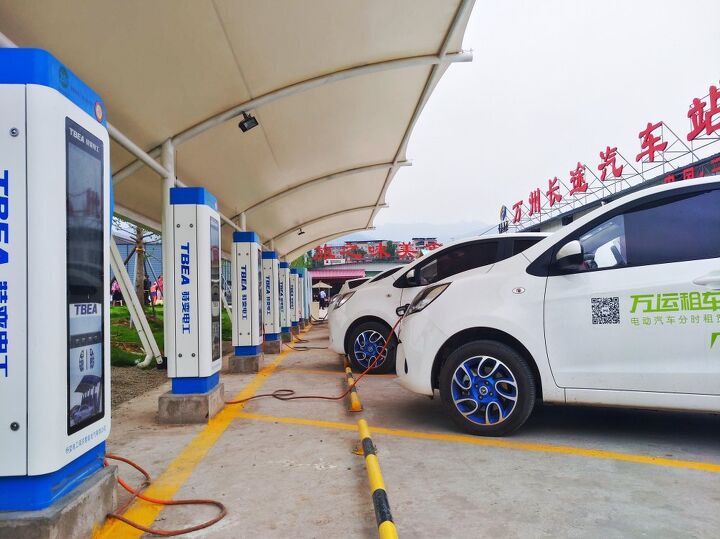



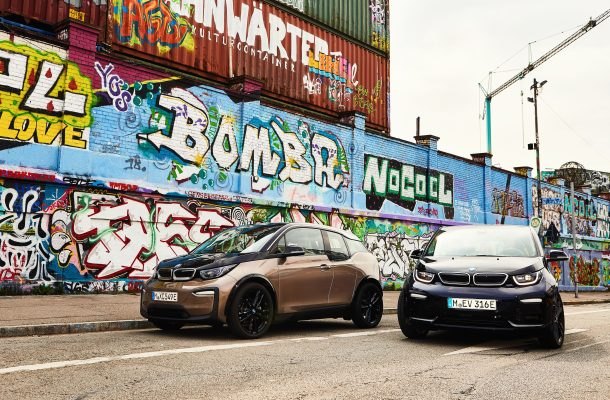
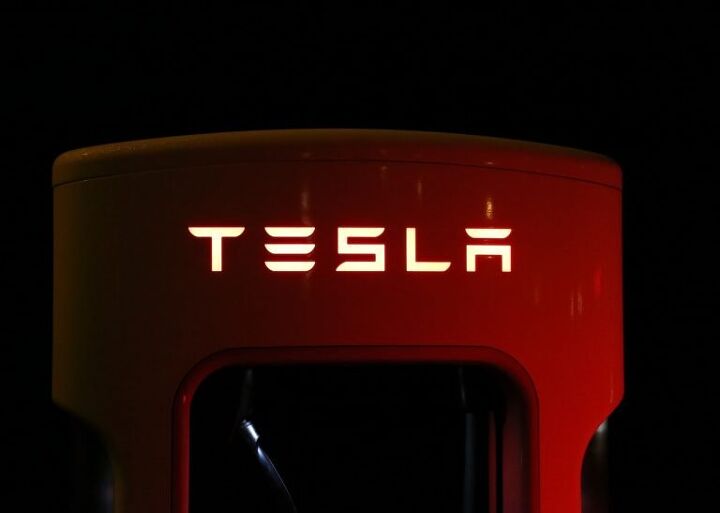

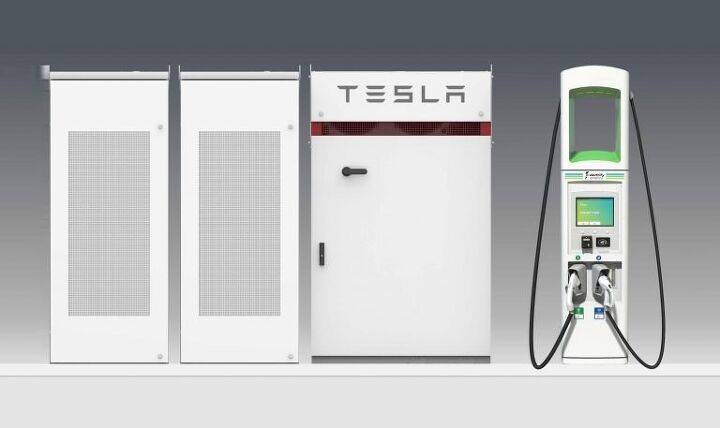
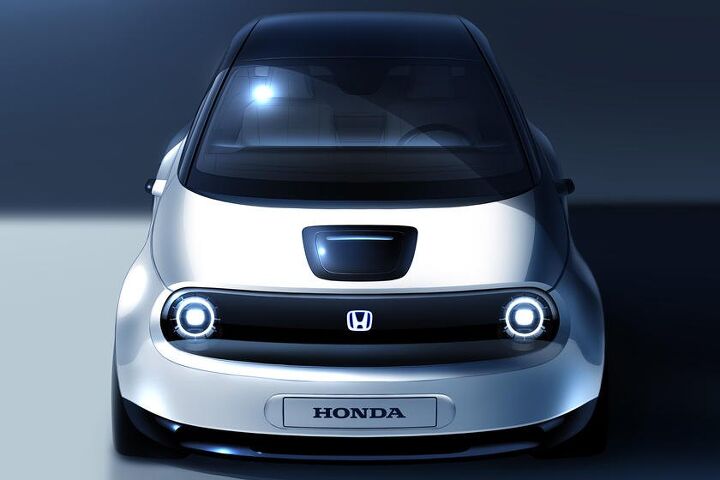


















Recent Comments